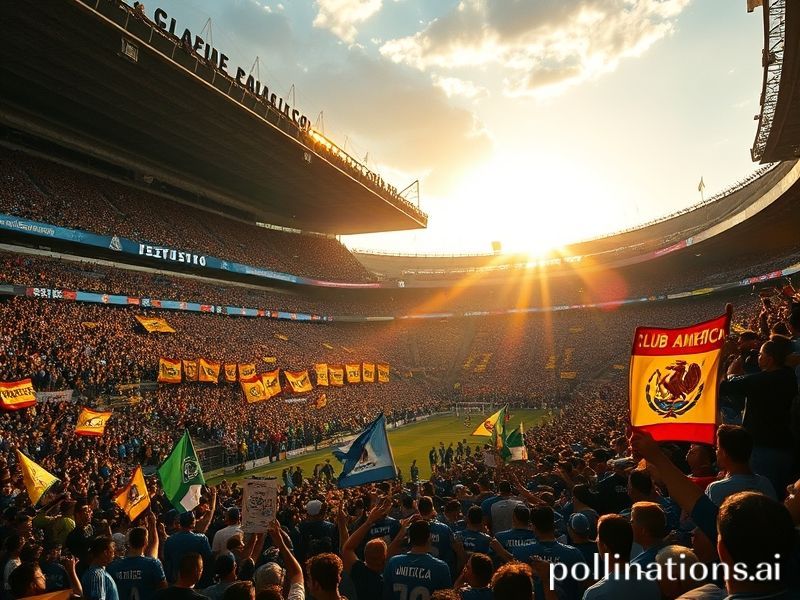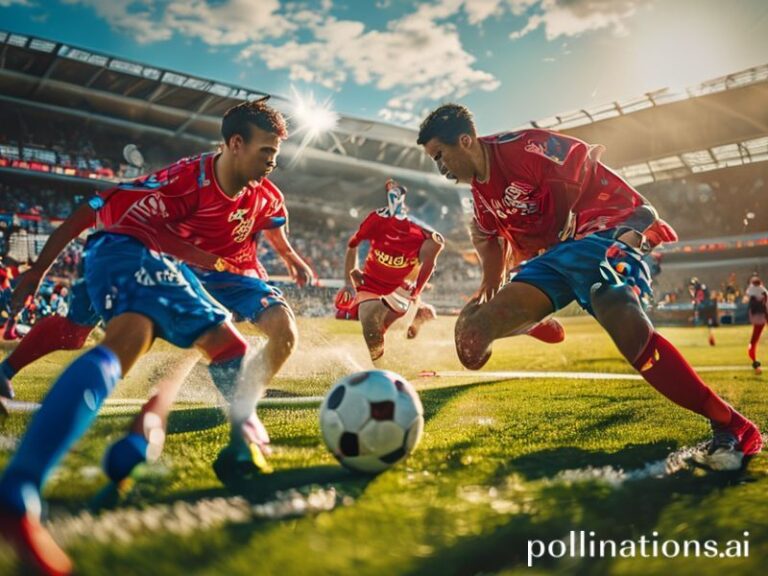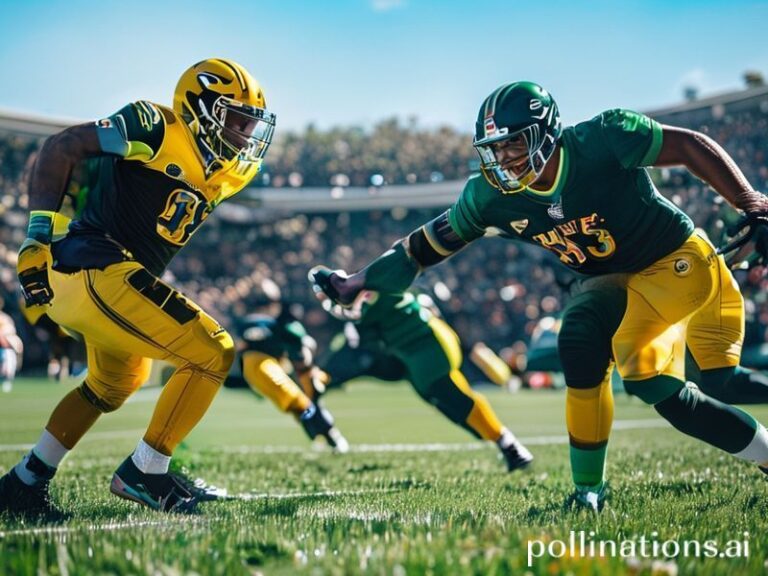Club América: The Mexican Super-Club Exporting Inequality One Trophy at a Time
Club América: How a Mexican Football Club Became a Mirror for the World’s Class Wars
By Eduardo “Eddie” Valdés, Senior Correspondent, Dave’s Locker
Mexico City—If the planet ever needs a crash course in late-stage capitalism, it could do worse than to spend ninety minutes at Estadio Azteca on a Sunday night. There, amid the sulfur-yellow seats and the relentless drone of a brass band, Club América plays football the way multinational conglomerates play politics: ruthlessly, expensively, and with the kind of smug inevitability that makes neutrals pray for a meteor strike.
To the uninitiated, Club América is merely a Liga MX outfit with a cartoon eagle for a logo and a trophy cabinet that looks like it was curated by a kleptomaniac oligarch. But step back a few paces and you see a transnational morality play: a privately owned super-club that has weaponized television rights, leveraged debt like a hedge fund, and still manages to convince its working-class fan base that every fresh title is a triumph for “the people.” Orwell would have applauded, then quietly updated his manuscript.
The global implications? Start with soft power. Televisa—Mexico’s answer to Disney if Disney also ran telenovelas, news networks, and the occasional election—broadcasts América’s matches from Tierra del Fuego to the barrios of East L.A. Every pirated stream in Bogotá or Madrid is a reminder that cultural imperialism no longer needs gunboats; it just needs a high-pressing 4-2-3-1 and a shirt sponsor from a Middle Eastern airline.
Meanwhile, the club’s roster has become a rotating UN of mercenaries: Serbian defenders lured by petro-dollars, Colombian playmakers escaping cartel-tainted headlines, and the occasional Argentine wonderkid who discovers that altitude sickness is merely nature’s way of asking for a bigger signing bonus. It’s football as global supply chain, except the raw material is human hamstrings and the carbon footprint is measured in private-jet fumes.
The fans, naturally, are bifurcated along the same fault lines that now slice through every major city on Earth. On one side sit the “azulcremas” themselves—lawyers, influencers, and politicians who treat the VIP boxes like Davos with nachos. On the other, a seething mass of tattooed ultras who save for months to afford tickets, then spend the match hurling batteries at the referee, a ritual as time-honored as it is futile. The batteries never hit their target, but the gesture lands everywhere: from Twitter threads curated by European hipsters to policy papers on stadium violence funded by NGOs that still haven’t figured out how to spell “Toluca.”
The irony, of course, is that Club América’s greatest export isn’t goals; it’s resentment. Smaller clubs across Latin America now ape its corporate swagger—selling naming rights to breweries, courting crypto sponsors, and pricing out generational supporters faster than you can say “VAR overturn.” In a region where inequality is measured by the gap between bulletproof SUVs and the buses that ferry maids to work, América has franchised the feeling of being left behind.
And yet, like any good super-villain, the club occasionally performs an act of accidental grace. When a hurricane flattened Acapulco last year, the players donated a week’s wages—roughly the cost of one midfielder’s skincare regimen—and the footage went viral from Lagos to Lahore. The takeaway? Even the Death Star had a recycling program.
As the final whistle blows and the Azteca’s lights dim to a corporate blue, one truth lingers in the smoggy night air: Club América may play in Mexico, but it belongs to the same global circus that gave us oligarch yachts, influencer revolutions, and streaming services that auto-renew while you sleep. The score on the scoreboard is irrelevant; the real result is a world where every underdog dreams of becoming the overdog, and the overdog has already trademarked the dream.
So next time you see that eagle crest flash across your screen, remember: you’re not just watching football. You’re watching the future, already wearing a sponsored kit and arguing about the offside rule on Reddit.







